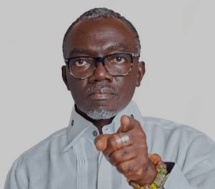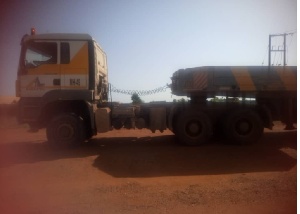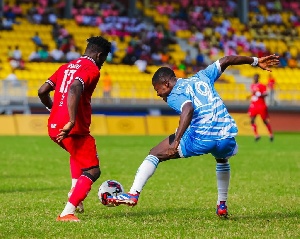Business News of Thursday, 3 April 2025
Source: www.ghanawebbers.com
IMF bailouts are merely bandages on deeper wounds

**IMF Bailouts: Temporary Relief, Not Solutions**
IMF bailouts offer temporary relief but are not real solutions. They act as bandages on deeper issues.
**Learning from History**
History shows recovery is possible. South Korea and Ireland overcame crises through discipline and innovation. Ghana must move beyond short-term fixes and embrace long-term reforms.
True progress requires clarity. Vision cannot thrive on recycled slogans or nostalgia. Fear may win votes, but it cannot sustain vision. Each generation acts as a bridge; strengthen it or future travelers will fall.
**Ghana’s Economic Challenges**
Politicians claim to care for the poor, yet poverty remains a reliable election strategy. Speeches inspire hope, while budgets lead to disappointment. Broken systems often follow unbroken blueprints.
Ghana's struggles mirror those of other resource-rich nations with low revenue. Despite wealth in gold, oil, cocoa, and lithium, poor fiscal habits persist.
Budgets benefit only a select few. The nation receives empty promises instead of real support. Public consultations often end in photo opportunities without meaningful change.
**Mobilizing Domestic Revenue for Growth**
To fund development, Ghana must mobilize internal revenue effectively. The informal sector needs integration into digital tax systems to boost compliance.
Currently, records are trapped in outdated methods and guesswork. Some failing policies serve hidden interests well. Compromise should benefit everyone, not just the privileged.
Focus areas include:
1. **Expanding the Tax Base:** The informal sector contributes little to tax revenue.
2. **Reducing Tax Exemptions:** Limiting tax holidays for foreign companies can increase funds.
3. **Improving Tax Collection Efficiency:** Strengthening institutions like the Ghana Revenue Authority is essential.
**Controlling Public Expenditure**
Public spending should align with national priorities. Currently, political convenience overshadows long-term development needs.
Ghana must adopt transparent budgeting practices like zero-based budgeting to reduce wasteful spending.
Audits can help identify ghost workers and inflated contracts while prioritizing key sectors such as education and healthcare over non-essential expenses.
**Diversifying Through Industrialization**
Overreliance on raw material exports makes Ghana vulnerable to price fluctuations globally. A diversified economy can create resilience and new opportunities through industrialization and research investment.
Key strategies include:
- Adding value to natural resources by processing them into finished products.
- Developing agro-processing industries to transform agricultural products.
- Investing in salt mining due to untapped reserves that could generate significant revenue.
- Boosting local production in textiles and renewable energy sectors for job creation.
**Investing in Long-Term Thinking**
A true leader inspires action rather than mimicking others' words. Africa's future depends on bold actions rather than waiting for approval.
Short-term wins must give way to generational investments focused on sustainable growth:
1. **Education:** Prioritize STEM education and vocational training for youth.
2. **Innovation:** Invest in R&D for local innovation across various sectors.
3. **Export Competitiveness:** Build industries that compete globally.
4. **Support Local Products:** Encourage buying made-in-Africa goods through strategic sourcing efforts.
**Addressing Corruption and Governance Issues**
Corruption drains national wealth and erodes public trust in governance structures. To prosper, Ghana must empower institutions while ensuring transparency and accountability at all levels of government.
Debt management should focus on strategic borrowing rather than becoming a burden that stifles growth potential.
**Embracing Potential Through Change**
A crisis often becomes Africa's business model but reform requires tough decisions—not just trending headlines or loud complaints about problems.
Ghana's greatest asset is its people—their creativity and resilience are vital for progress toward realizing potential through mindset shifts away from short-term thinking toward long-term visions prioritizing sustainable policies that foster growth over timeframes defined by immediate results alone!
Policies should reward integrity while inspiring leadership capable of engaging citizens meaningfully—one engaged citizen can spark change more effectively than mere declarations ever could!
Citizens need accountability: pay taxes responsibly; support local businesses; demand transparency; respect environmental sustainability—all crucial elements driving economic planning forward sustainably!
With bold decisions combined with disciplined actions plus collective sacrifices similar successes achieved elsewhere (like South Korea), Ghana too has what it takes! This moment serves as an urgent wake-up call not just locally but also regionally among developing economies facing similar challenges ahead!
The IMF may provide temporary relief—but true transformation comes from within! By addressing wasteful expenditures alongside structural issues while diversifying economies via multi-sector industrialization efforts coupled with embracing long-term thinking—Ghana stands poised finally break free from dependency cycles towards building futures reflecting its immense potential!
The future belongs only those prepared seize opportunities presented before them! With all necessary tools available now lies responsibility leaders citizens alike rise challenge ahead together forging paths leading brighter tomorrow where voices minds ideas citizenry become blueprints shaping destinies collectively creating beacons hope models aspiring nations everywhere else too!










